Are Your Muses Too Unreliable?
Podcast: Play in new window | Download (Duration: 39:44 — 36.4MB)
Subscribe: Apple Podcasts | Spotify | iHeartRadio | Email | RSS | More
“Inspiration is the windfall from hard work and focus. Muses are too unreliable to keep on the payroll.”
―
A muse is a person or personified force who is the source of inspiration for a creative artist. I’d modify that definition slightly by saying a muse is any source of inspiration for creativity. Do you have a muse? Have you ever?
Through the years of Leaning Toward Wisdom, I’ve talked about two that have occupied The Yellow Studio from the beginning – for over 22 years.
Books.
A guitar.
Back in July, I started The Great Purge. Around 1,500 books exited The Yellow Studio, donated to the local library where I suspect the majority were sold in an annual sale to raise money for said library. The few I decided to keep – well under 100 titles – were boxed up and safely stored away for the next chapter of The Yellow Studio.
By mid-August, whatever muse the books served was gone. Or was it?
The books were gone, but any muse – source of inspiration – was far from gone. Sleep and the books were gone, but the inspiration was running wide open. I began to get on an unprecedented recording roll prompted by hours of writing. Feelings, phrases, words, quotes, lyrics, and photographs prompted the chasing of many ideas. I’m not saying any of them are good. You’re clicking PLAY so you can decide that. I only know that I had more episode ideas brewing than ever. Usually, I’m working on 4-6 show ideas, half of which never see daylight. About half of them languish and never get fully developed. Suddenly, in the span of about a month I looked and realized I had about twenty drafts going – show ideas that had a title and at least a couple of paragraphs of notes. I began to look at the totality of them to figure out the ones I most wanted to push across the finish line.
One idea begets another. It’s always worked that way for me. There was no attempt to keep that habit in play though since I already had so many episode ideas to pursue. But it happened anyway.
I’d sit here inside The Yellow Studio, headphones on listening to the BoDeans, or Dawes, or The Heavy Heavy, and start noodling on one idea – one draft. And a phrase or lyric would hit me, prompting me to open a new draft where I’d create a title. Just a title. Maybe one sentence to make note of what I was thinking of at the time. Then I’d go back to my original work.
“Great! Now instead of finishing one idea, I’ve created yet another one,” I’d think. Never mind. I’d trudge forward trying to finish at least one episode.
I leaned into the process.
Until I got COVID. My first foray with the virus. I’ll forever blame my contracting it on my poor sleep habits, provoked mainly by all the changes I was planning. Changes I desired and changes I was looking forward to – but changes that were putting my mind on a higher octane than it had experienced in some time. My mind wasn’t racing so much as it was doing cartwheels. I’m usually a bit more settled than that. But as we both know, we’ve never been HERE before. We’ve never been this age, in this place, in these circumstances, trying to do whatever it is we’re trying to do. We’re all in unchartered water as we enter a new day. Or night.
I thought about the muse and my references to my two most-mentioned muses. The biggest muse – the one that required the most space and was the most obvious – was gone. I was no longer surrounded by all the book spines that had surrounded me for years. And I was happy about it. I never experienced the sadness or difficulty that I predicted. Before The Great Purge, I had dreaded it, fearing I’d struggle to decide which books to keep and which would go. However, on the first day of sorting, I found myself fully engaged to see how few I could keep and how many I could part with. I piled the books in the hallway just outside The Yellow Studio. At one end of the hall were the keepers. At the other end were the goers. It quickly became a game to see how small I could make the keeper section and how large I could make the goer section. It was easy. Far easier than I had imagined. Mostly, it was liberating.
Once the books were gone from inside The Yellow Studio I sat here and wondered if my proverbial muse – the books – weren’t a muse at all, but a weight, an impediment. What if I had been wrong all these years about the books serving as a muse?
That’s when I began noodling today’s show, driven by my curiosity about these two perceived muses inside The Yellow Studio.
Do you have a muse? Have you ever had one? What made you think it was a muse?
For me, books were always inspirations for ideas. I’d read them and while I admit most weren’t worth the time invested to read them, many of them had at least one decent idea I could latch onto. The titles would remind me of when I had first read that book – and I’d have some thoughts about it. The titles alone often served to spark an idea.
Looking back, now that the books are gone, I wonder if they were less inspirational and more of a visual crutch. Did you catch what I said upfront about the things that inspire me?
Feelings, phrases, words, quotes, lyrics, and photographs prompted the chasing of many ideas.
Only one of those is specifically visual, photographs. It made me wonder why I ever thought the books were a muse. That led me to the quote by thriller writer Helen Hanson. Her statement hit me, “Muses are too unreliable to keep on the payroll.” That’s when I began to ask, “Are my muses even muses? And are they too unreliable to keep around?”
Turns out I had my answer – at least my short-term answer – on the books! Not only were they not the muse I thought they were, but they may also have been a hindrance. A reminder of the creativity of others, but not the provoker of my own that I had always thought. Back in July, I updated my personal website – RandyCantrell.com – to include my renewed focus on creation over consumption. I was already thinking these things long before I started The Great Purge. I had been growing tired of all the time invested in reading books only to be frequently disappointed in the content. Mostly, I had really grown tired of the marketing of books – the constant overpromising and underdelivering.
I know that may sound harshly judgmental – and I admit it is. But it’s based – no, it’s steeped – in my personal experience. With one small, but major caveat – these were mostly business or non-fiction books I was thinking of. Were these books based on creativity? Some. Some not. Then the reality of what the books had really served hit me. Provoking thoughts. Questions. Even the bad ones had done that.
There I was sorting books in the hallway. Dividing the keepers from the goers, mere feet apart from one another. Some destined to find their way into the hands of new owners. Others, destined to remain with me – likely for the duration of my life, however short or long that may be. And the money and time invested in them had been worthwhile, if only because they had forged me into a person looking for thoughts, insights, experience, and wisdom. I figured even the bad ones had taught me something.
But none of that meant they were a muse.
And it didn’t mean that my past passion to buy and read books had to remain as it had in the past. For starters, there are now many new mediums from which ideas can be collected and sparked. Like podcasts. 😉
Information is freer than ever before. I’m not saying books are outdated because I still love to read. I still love books, but today’s love looks and feels different. I’m less hungry for them today. I think it’s because they once served as a gateway – the primary avenue – for learning. Today, they’re less so and it’s made me more discriminating when I look at books. When you’ve read as many business, leadership, organizational behavior, and other such books as I have, I suppose it improves your discernment radar. It’s not 100% accurate but I’m able to figure out more easily books that are liable to be worthless.
The muse wasn’t gone, but my thinking books were a muse was. More specifically, my having read them – the hours spent pondering ideas – had been my muse all along. The books had helped. Been a vital part of the process, but there was no inspirational quality inherent in the books themselves as I had originally thought.
Creation versus consumption.
Seems to me this is the common plight of the digital age. Consumption is a habit because there’s so much being created. It’s a great paradox. Creation is easier than ever before. The avalanche of content begs for eyeballs and earbuds. Some of it finds an audience. Much of it doesn’t. So somebody is creating stuff, including books that are still being written and published. We’re driven to consume, which is why you hear about movie studios, TV networks, and stream services hungering for content.
About now I started thinking of this whole muse thing – this whole creation versus consumption thing – in a negative light. Well, potentially negative. It started with HGTV, a network devoted to hawking housewares, flooring, paint, and other items needed so you can make your house better, just like the ones you see on TV. Don’t get me wrong. I love HGTV and watch a number of the renovation shows.
Marketing is designed, in part, to lure us. To create, or at least identify, our need or desire. Sparked by watching young women posting updates and creative things they were doing in their homes, I began to think about this whole muse thing and how HGTV and other platforms were fueling dissatisfaction. Improving something. Growing. Those are important components in my life. I get it. But mostly, I was thinking of the investments made in money and time. Remember, I’d been in the throes of The Great Purge – something that required no money, but time! It’s also important to remember that I was leaning harder into a more modest way of life. It’s just where I’m at in life.
As I am wont to do, I started mulling over childhood creativity. Those lazy afternoons where we laid around under the pine trees staring at the sky trying to figure out what we’d do next. Bored.
People get bored with their homes. HGTV provides some terrific inspiration and ideas on how we might alter our living spaces to be better. Different, at least. A muse of sorts. Is marketing done on HGTV, whether through advertising or programming, a muse?
It’s certainly not how I always thought of a muse. But I guessed it could fit if you consider the ability of a muse to foster discontentment. It’s not how I saw muses. I still don’t. It smacked more of covetousness than inspiration for creativity.
Then enters the guitar. My guitar. One I saved up for, dollar by dollar for a few years until I could afford it. Still in the case, with the plastic protector on the pickguard. Even though I bought the guitar back in 2007.
Like the books I had two distinct memories of the guitar, both involving some people I love. One an old friend who passed on. The other a young lady who just months ago because a first-time mom. Two people who create music, something I’ve never done. Two people who can play the guitar, something I’ve never learned. They’re the only hands that have fretted this guitar since I bought it brand new.
Stanley, my lifelong boyhood friend, who died back in 2013 was the first to play it.
Sophie, a young lady who married a young man I’d grown close to, was the second.
Only those two.
Along with books, I’ve long declared that owning a guitar – even though I don’t play the guitar – has served as somewhat of a muse. It’s based on my love affair with the instrument. A love affair that never drove me to learn it, but drove me to listen to others play and appreciate their abilities.
Here I sat inside The Yellow Studio, having concluded the freedom of the books was now serving me better than hanging onto them. And I realized my love affair with the guitar had nothing to do with owning one. The reality was, that owning one had only served as a reminder that I could – if I wanted – learn. But I never have. And I’ve owned guitars almost all my adult life. Fact is, I’m never going to learn because long ago I realized I enjoy hearing great guitar players more than I’ve ever wanted to become one. And there’s nothing appealing to simply knowing how to play. I’d much rather listen or watch others do it well.
So what to do with this muse that is not a muse at all?
If as Helen Hanson claims, a muse is too unreliable to keep on the payroll, well something that isn’t a muse is surely too unreliable to keep around. Maybe.
Then I aimed my attention at the first sentence of Helen’s quote. “Inspiration is the windfall from hard work and focus.”
My hard work and focus have never been on learning to play the guitar, but on listening to and appreciating how well others could play. I hadn’t worked hard at all to learn. I had invested a lot of time into hearing others play though. But this guitar – this particular guitar – has been played by a friend who was closer to me than a brother. He was the brother I never had. I did some shows about him so I won’t belabor it here. You can search “Stanley” in the search feature and find them.
This guitar isn’t some classic high-end instrument. It’s middle of the road and I got it because I thought I might give learning one more try with a guitar that has lower action (the height of the strings off the fretboard). Obviously, my plan was more in my head than in my fingers!
Keeper or goer?
This was much tougher than the books because even though it was less of a muse than the books, there were specific people associated with the guitar. One of whom was extraordinarily special to me. And I’ve got audio recordings of him playing it, too.
I went so far as to take pictures of the guitar and case…anticipating that I might sell it. At some point, I grew sad that an instrument built to be played…wasn’t. And if I retained ownership, it would never be played. Was this guitar destined to live its entire life in a case? A pickguard destined to remain free of pick marks? A fretboard devoid of human fingertip oil?
I wondered how many songs the instrument had already sacrificed because it got an unlucky draw of being sold to a guy like me.
I felt sad for this guitar. That drove me to take those pictures, thinking it best to help it find a home where it could be put in the hands of a player rather than a dreamer.
But I just couldn’t think of it being a goer. Since 2007 it had been a keeper. A few songs. Two players. An old man – my age (Stanley James Elmore was only 56 when he passed — April 11, 1957 – May 12, 2013). A young lady, Sophie Smith Elliott. Still very much alive and now a wife and mom.
This guitar may not be a muse. And it may not be reliable in the least, not in my hands. But it has a priceless value for me. Value it wouldn’t have with anybody else. Are memories a muse? If so, then this instrument fits the bill.
Then I modified my earlier statements…
Feelings, phrases, words, quotes, lyrics, and photographs prompted the chasing of many ideas.
I added an important muse…one that had been staring at me the whole time. Memories. And I changed the sentence from past tense to present tense. And I made it more personal and specific.
Memories, feelings, phrases, words, quotes, lyrics, and photographs prompt me to chase new ideas.
And with apologies to Helen, I modified her quote, too – to more ideally suit my current situation.
“Inspiration may be the windfall from hard work and focus, but muses are sometimes too valuable to part with.”

Please tell a friend about the podcast!
Are Your Muses Too Unreliable? Read More »
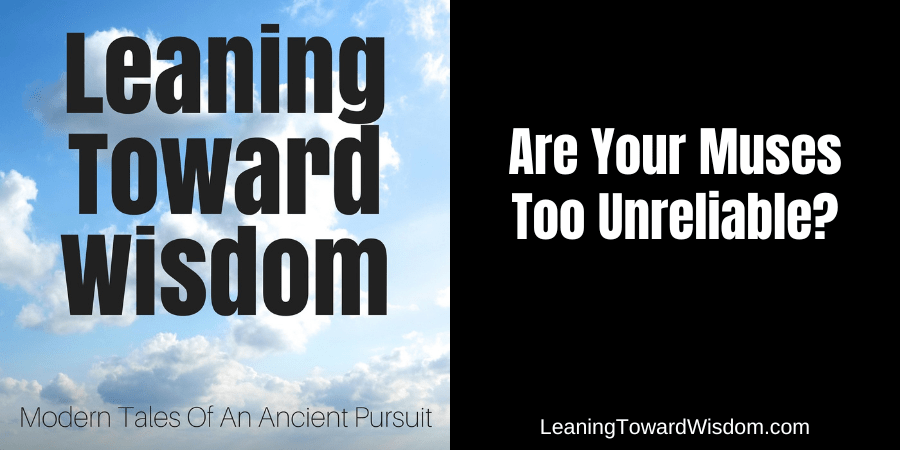
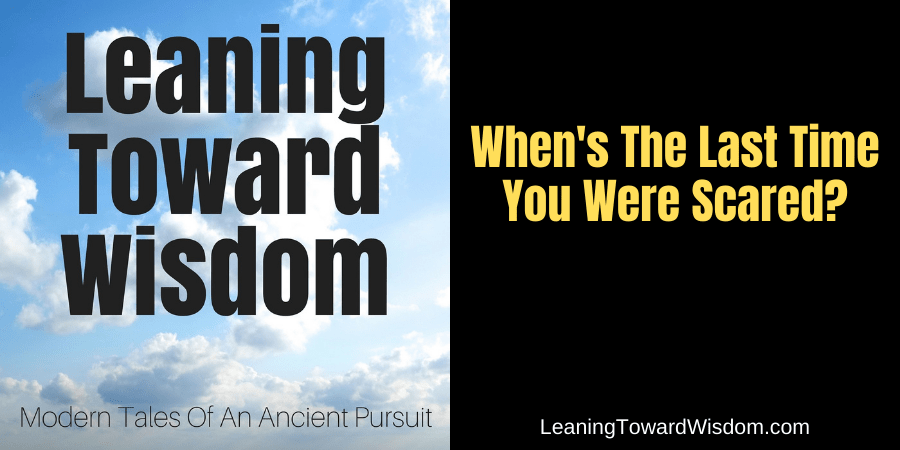
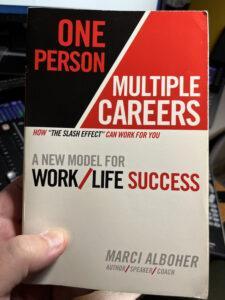 Encore.org
Encore.org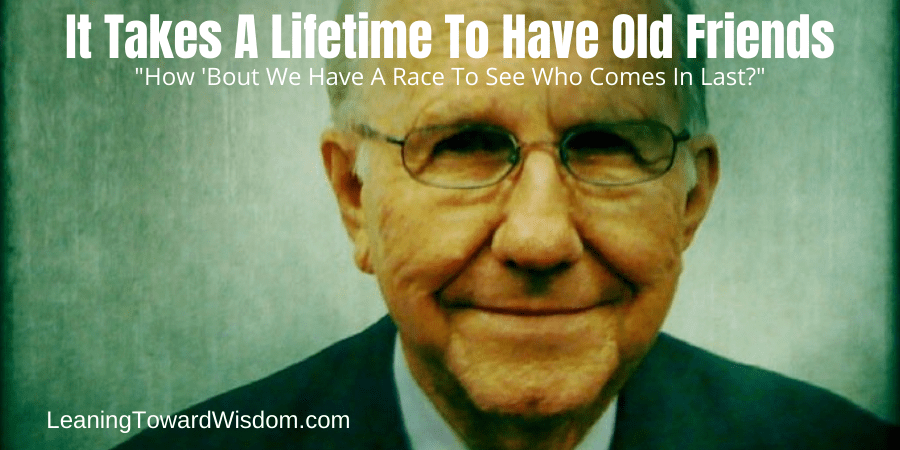
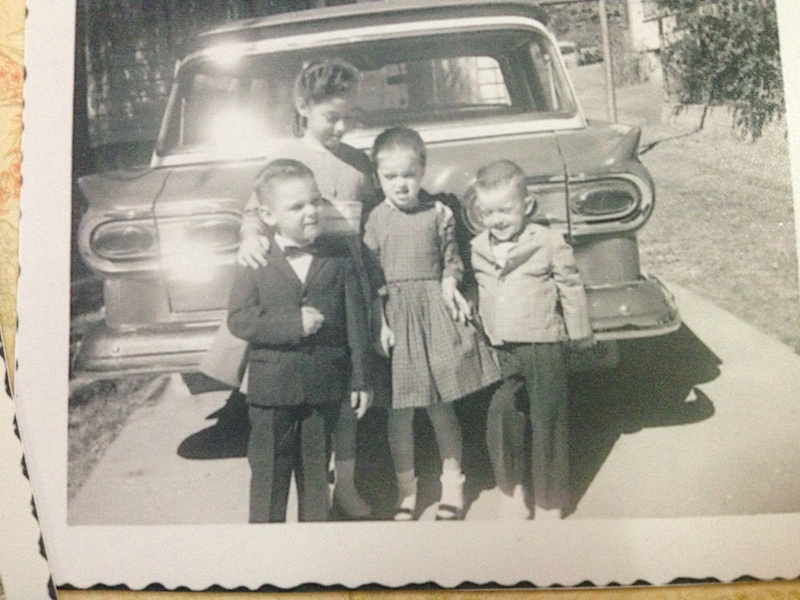
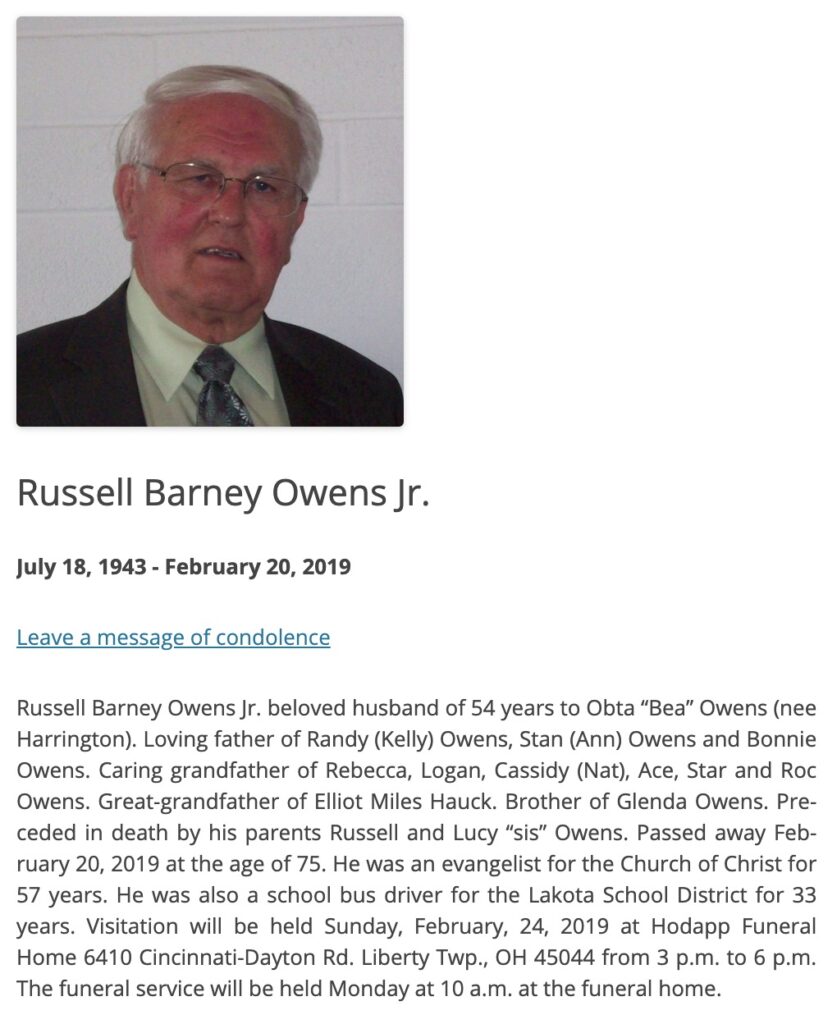
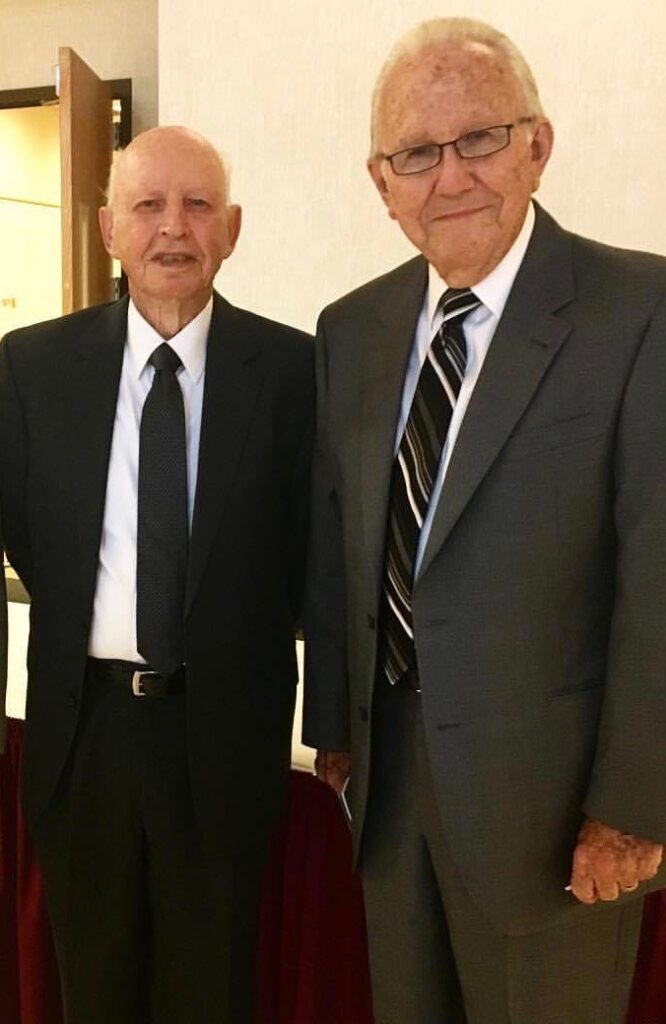
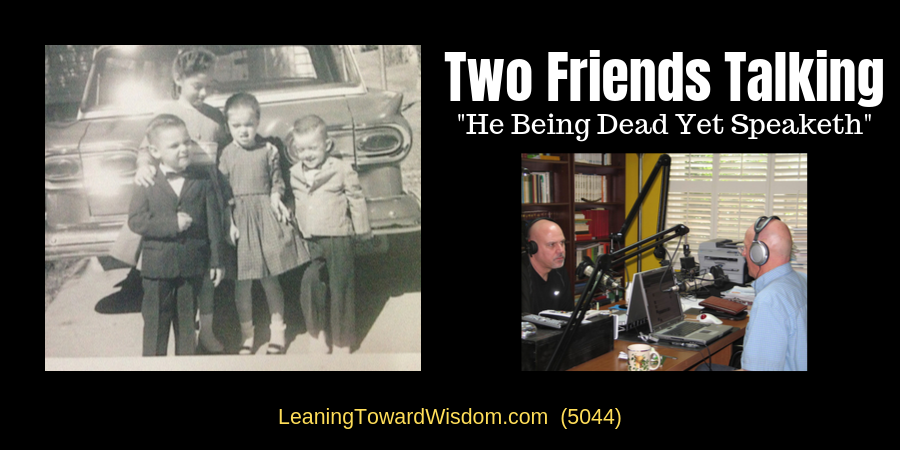
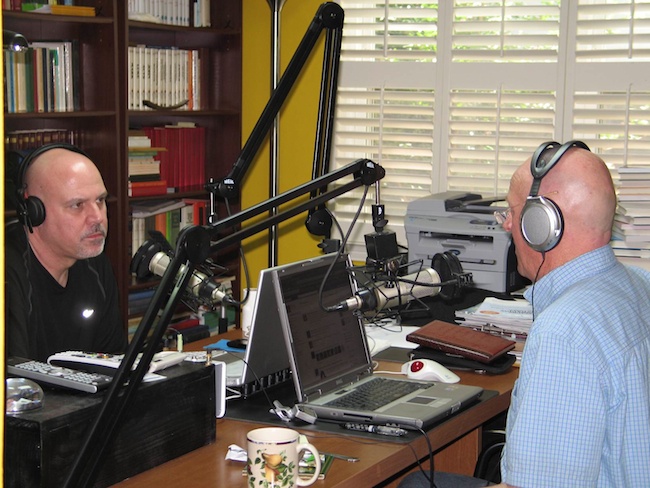

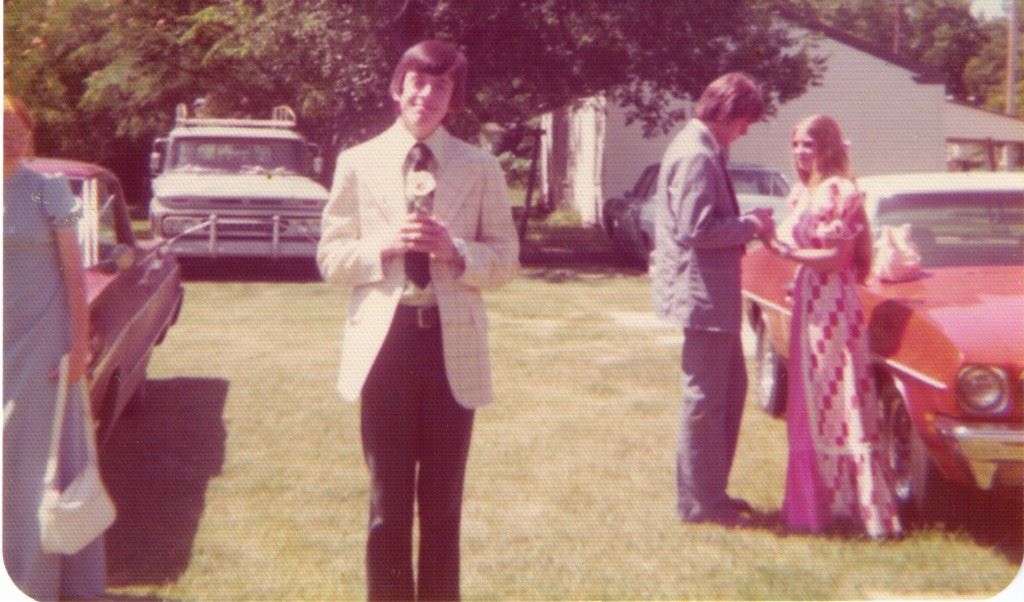
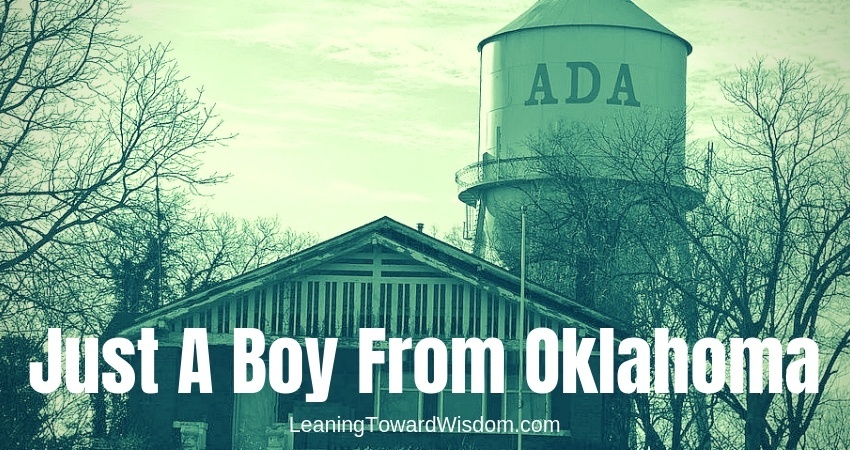
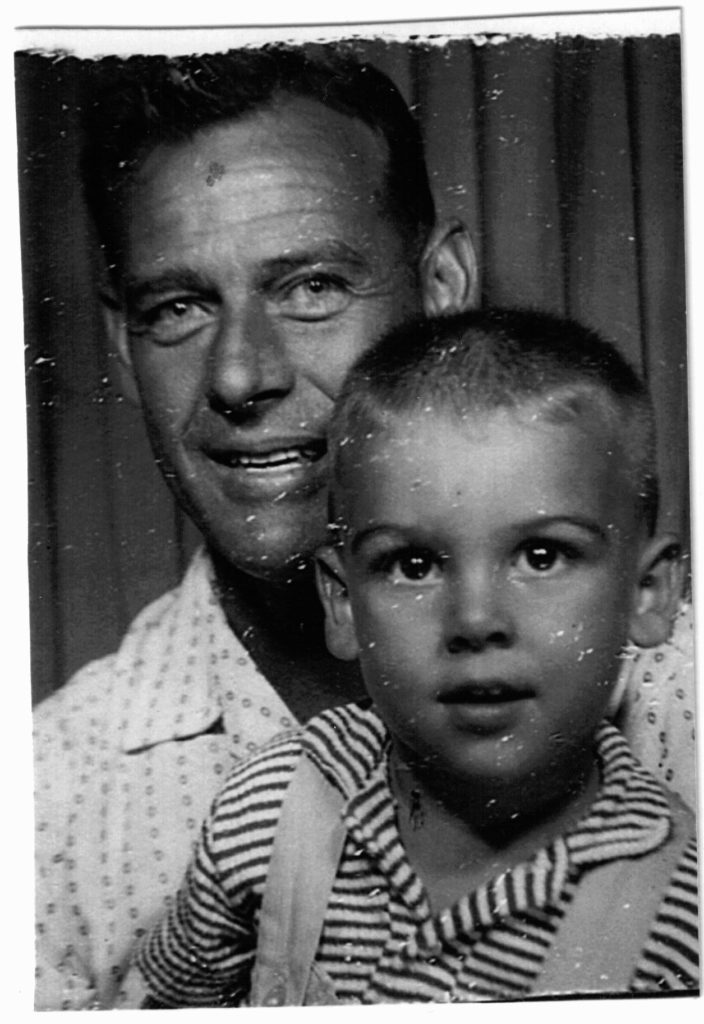

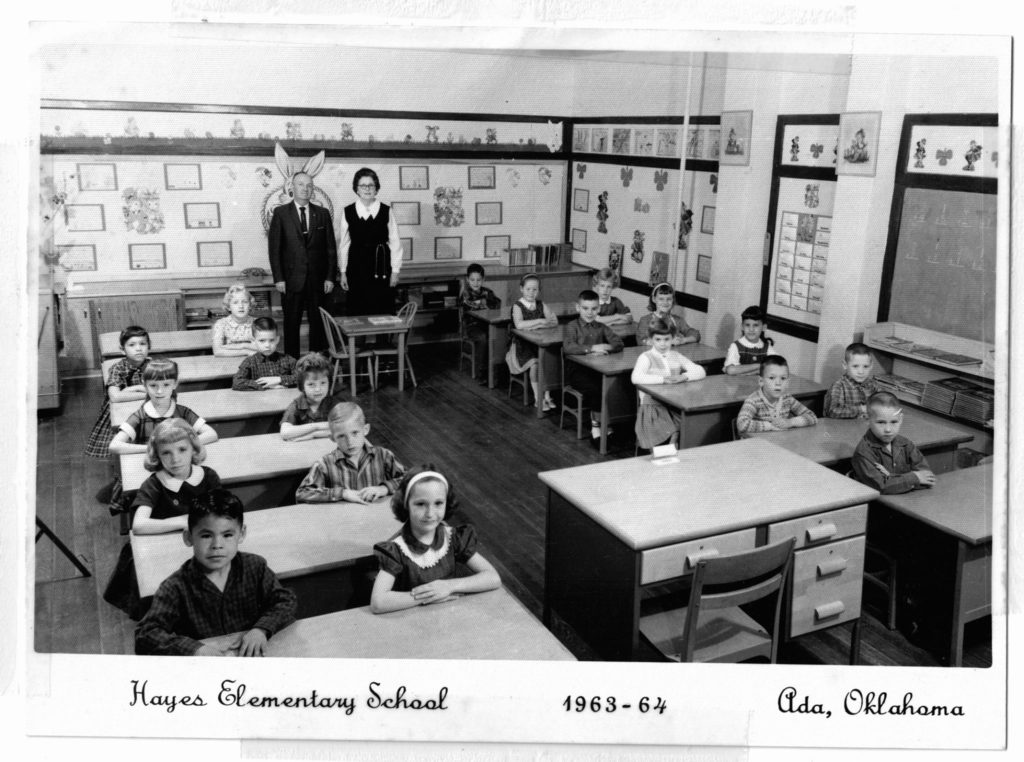
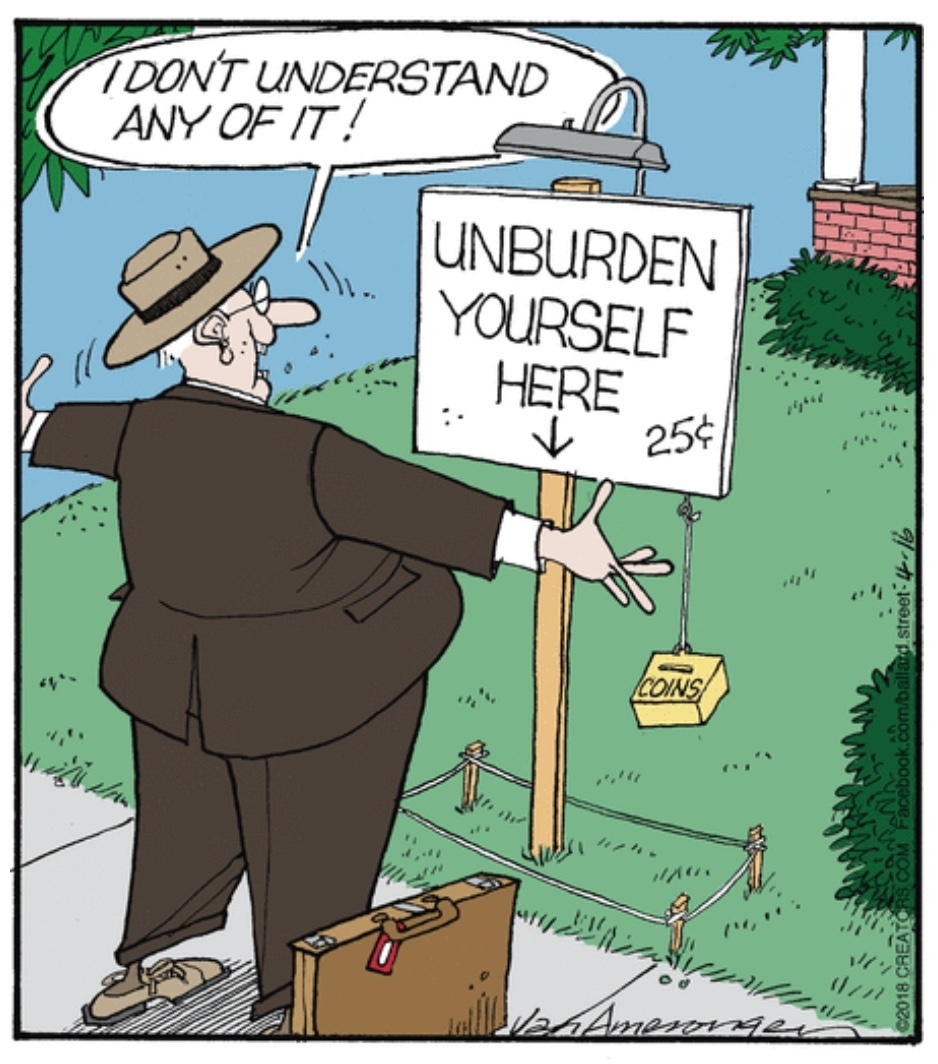
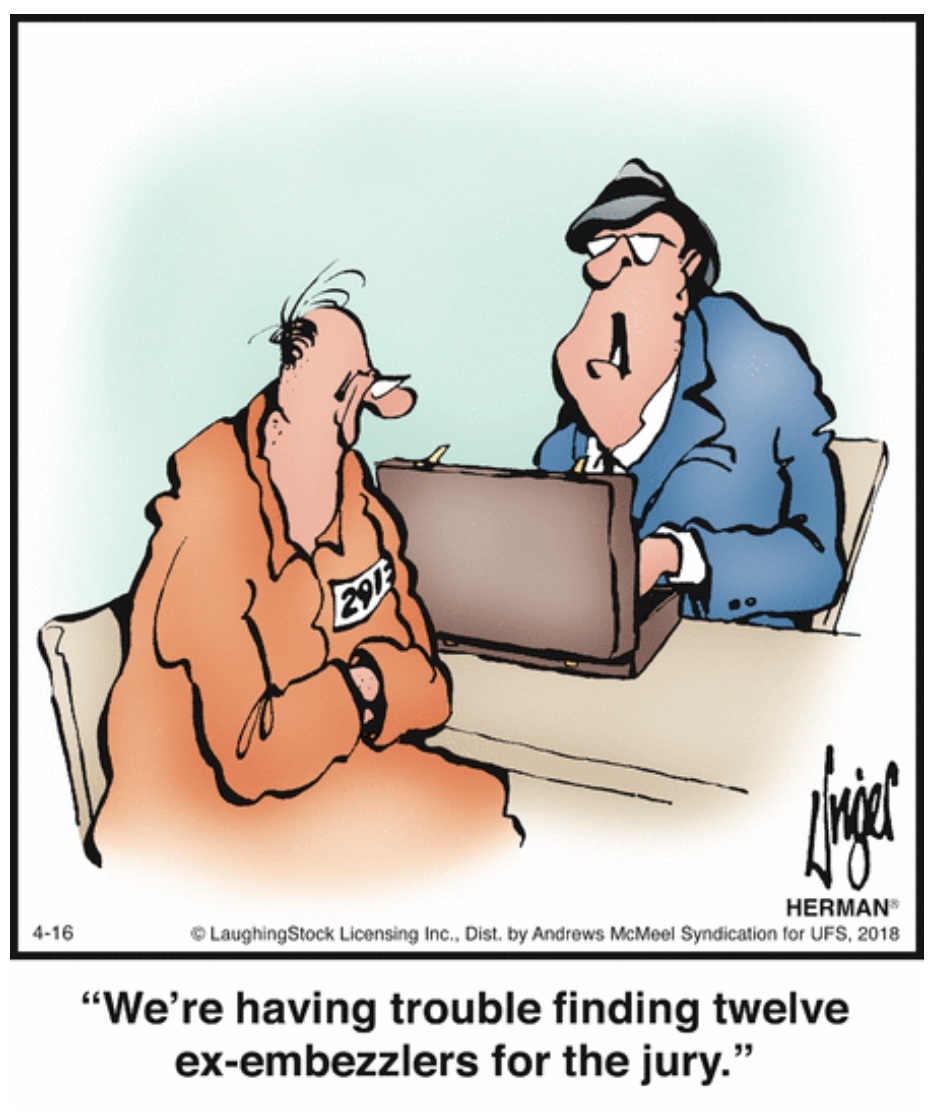

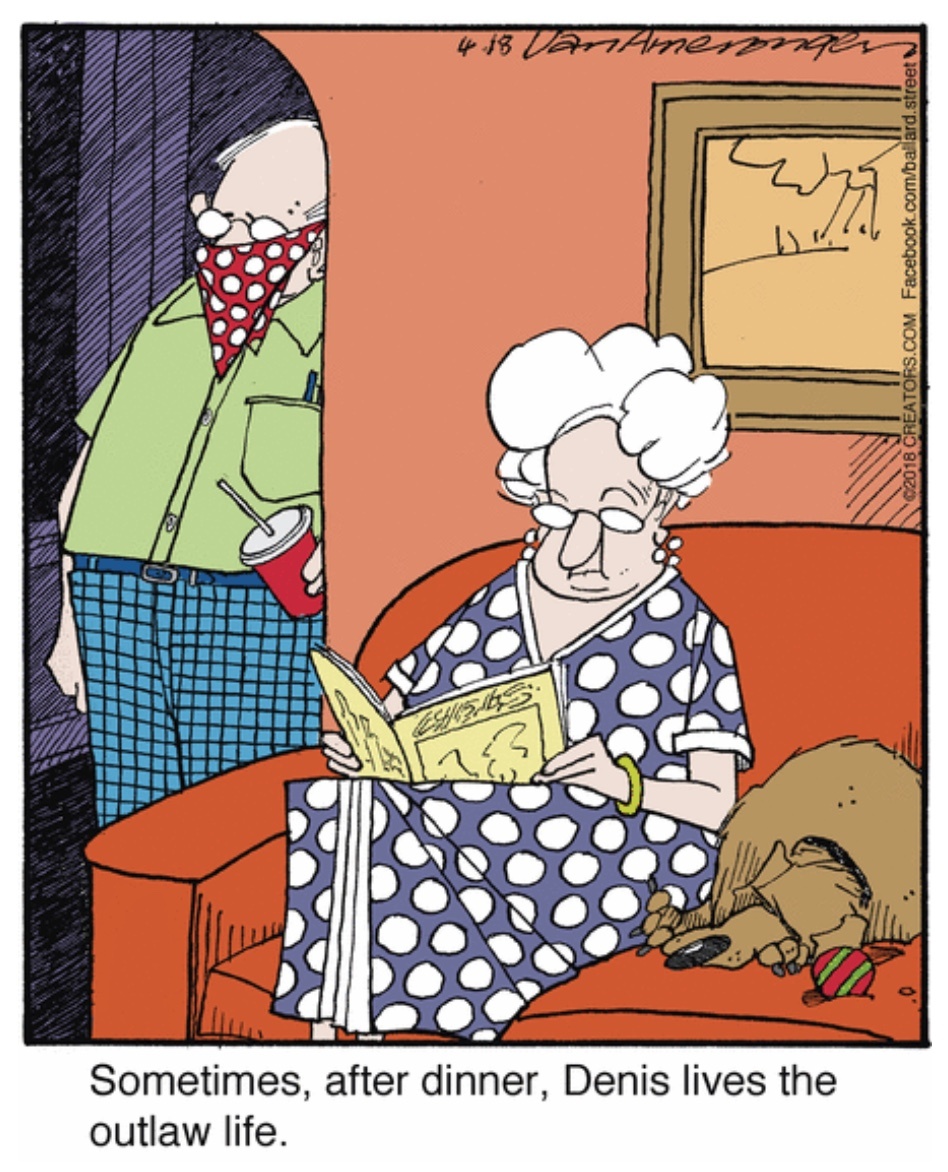
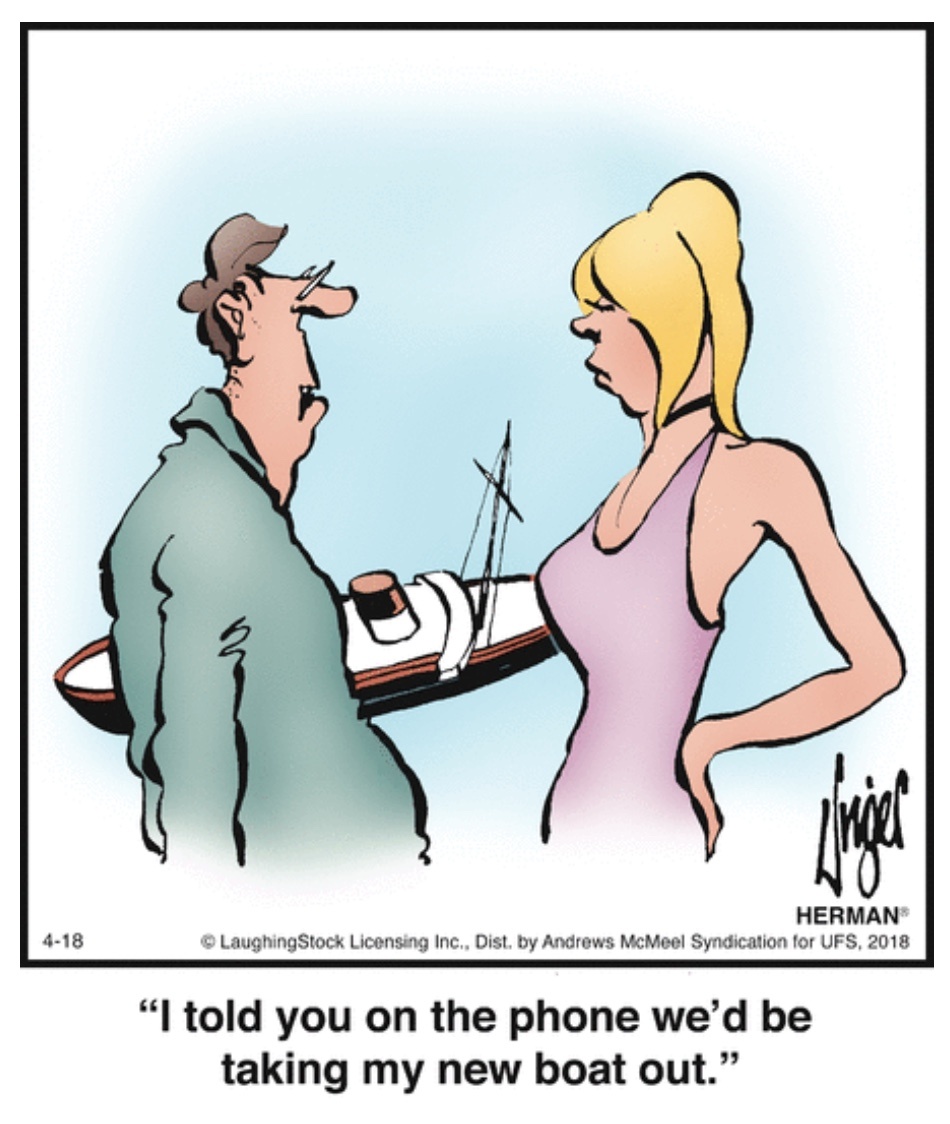
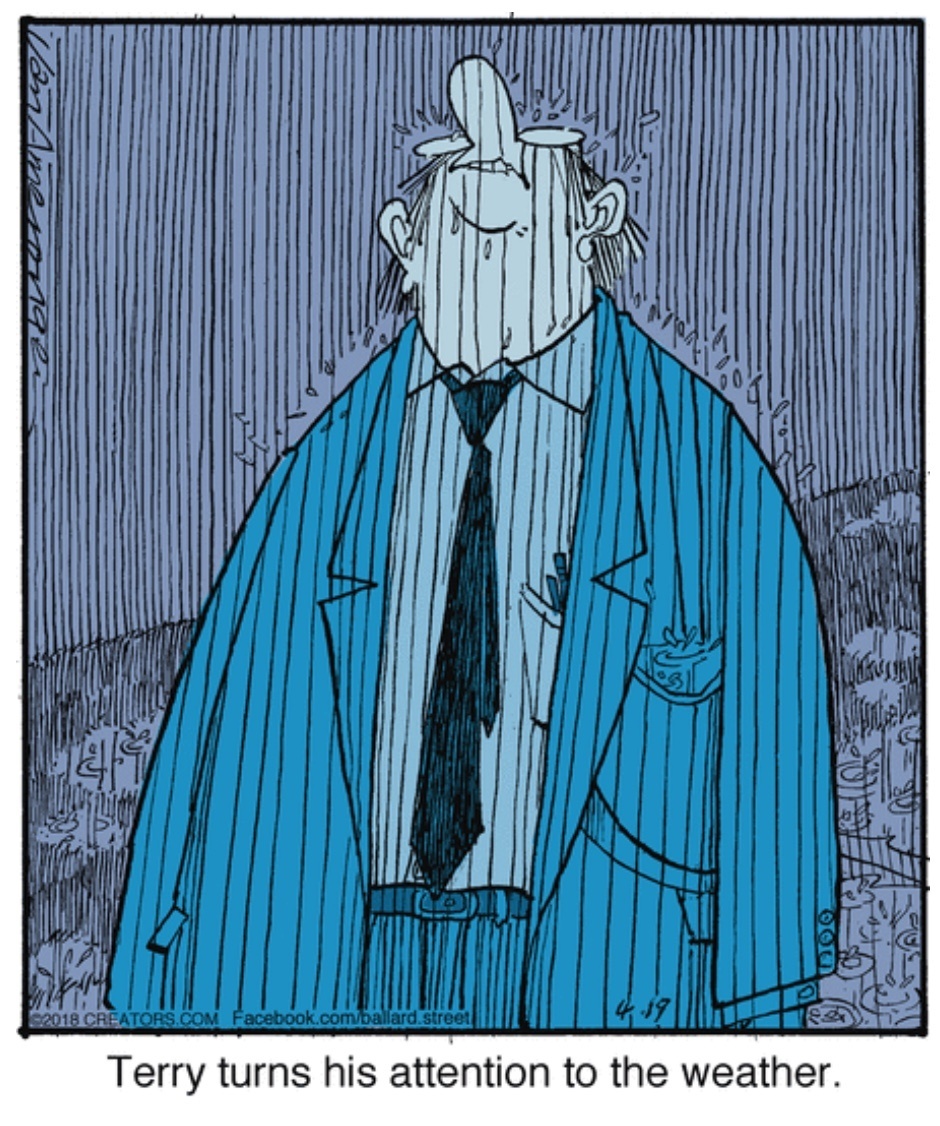

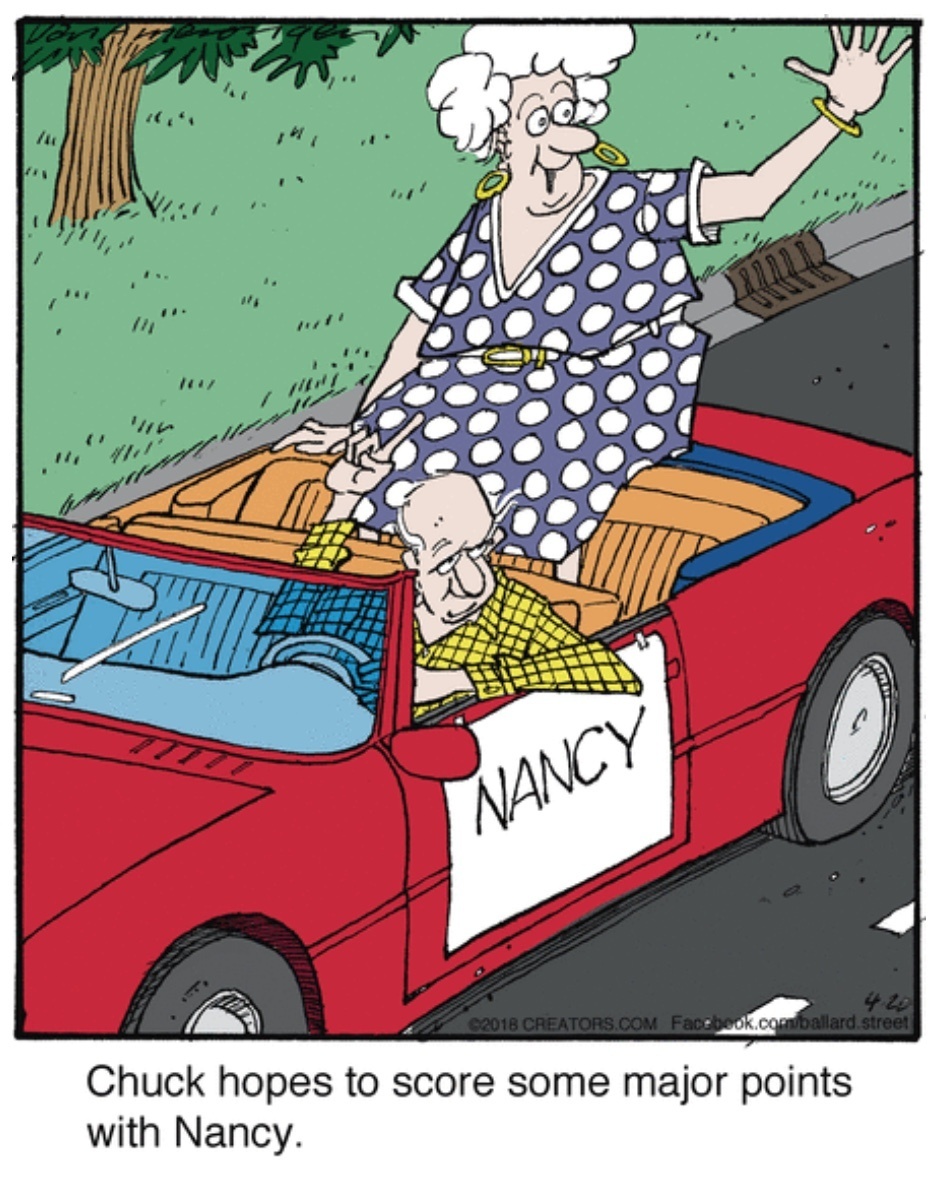
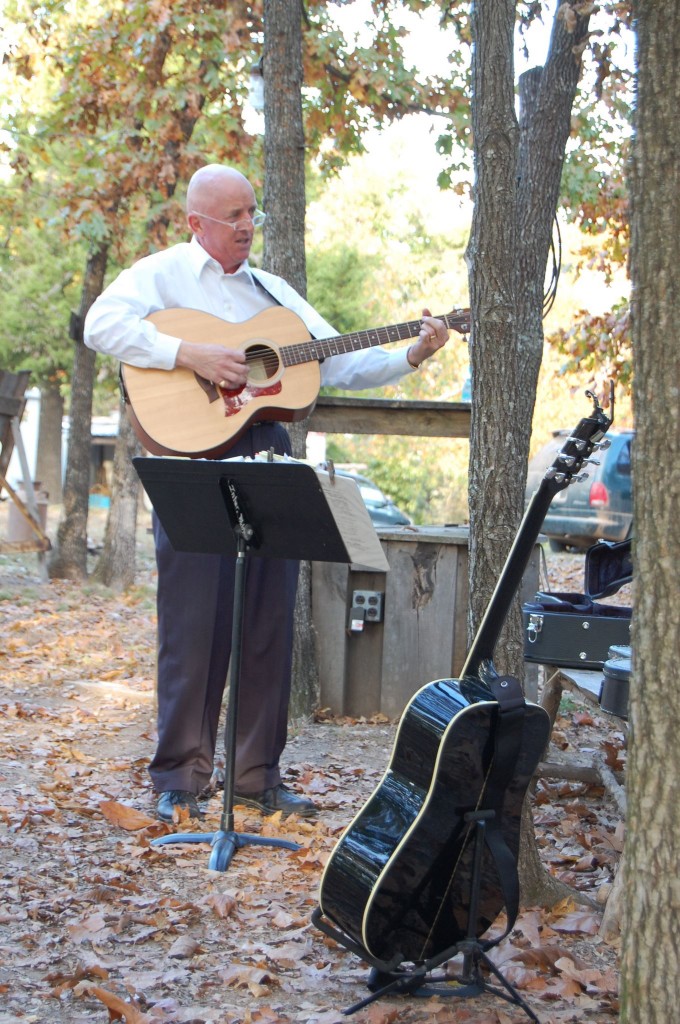

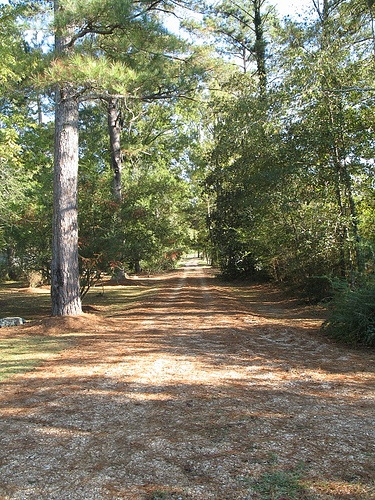

 On the back porch hung some old shirts. Ryan spotted one that had “M. Lynwood Smith” handwritten on the inside of the collar. “Look, here’s one that’s been autographed,” said Ryan. Ryan saw some shirts with pretty ragged sleeves. Darrell pointed out how Lynwood would take an old long-sleeved shirt and cut the sleeves off to make a short sleeve work shirt out of it. A few hung on a wire fastened to the ceiling of the back porch.
On the back porch hung some old shirts. Ryan spotted one that had “M. Lynwood Smith” handwritten on the inside of the collar. “Look, here’s one that’s been autographed,” said Ryan. Ryan saw some shirts with pretty ragged sleeves. Darrell pointed out how Lynwood would take an old long-sleeved shirt and cut the sleeves off to make a short sleeve work shirt out of it. A few hung on a wire fastened to the ceiling of the back porch.
 On the porch was a cushion on an old green piece of outdoor furniture. Where the cushion sat was nearest the front door to the house. That was Lynwood’s spot. It gave him the best view of the lane.
On the porch was a cushion on an old green piece of outdoor furniture. Where the cushion sat was nearest the front door to the house. That was Lynwood’s spot. It gave him the best view of the lane.